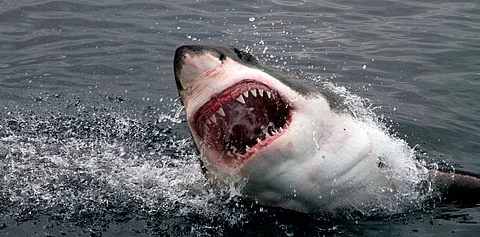

Rajat Ghai
The world’s sharks and rays have declined by more than 50 per cent since 1970, according to a new study.
The primary reason for the decrease has been overfishing, which has decimated populations of chondrichthyan fishes – sharks, rays, and chimaeras (closely related to sharks) – by more than half in the past 50 years.
In the case of sharks, the threat posed by intentional targeting and bycatch is compounded by habitat degradation, climate change and pollution. “The result is over one-third of chondrichthyans now face the threat of extinction,” a statement by Australia’s James Cook University noted.
Declines first occurred in rivers, estuaries and nearshore coastal waters before spreading across the oceans and then down into the deep sea, as per the analysis
“The sequential depletion of the largest and most functionally important species – such as sawfishes and rhino rays – was followed by the decline of large stingrays, eagle rays, angel sharks, hammerheads and requiem sharks. Eventually, fisheries turned to deep water sharks and skates for the liver oil and meat trade,” lead author Nicholas K. Dulvy, from Simon Fraser University in Canada, was quoted by the statement.
The research though offered hope for sharks, rays and chimeras of the world.
Countries can reduce the risk of extinction to these animals by lowering fishing pressure to sustainable levels, strengthening fisheries governance, and eliminating harmful subsidies, as per the authors of the study.
“Progress has already created bright spots of hope for chondrichthyans, including in Australia, Canada, New Zealand, United States, and parts of Europe and South Africa,” the statement quoted James Cook University professor and co-author Colin Simpfendorfer.
He added that chronic underassessment and undermanagement of fisheries is widespread, particularly in countries with weaker governance.
“Science-based fisheries catch limits and measures to minimise incidental catch, including spatial protections, are essential to ensure sustainability and to recover species to their ecological, social, and economic potential,” said Simpfendorfer.
Ecological erosion and expanding extinction risk of sharks and rays has been published on December 6 in the journal Science.